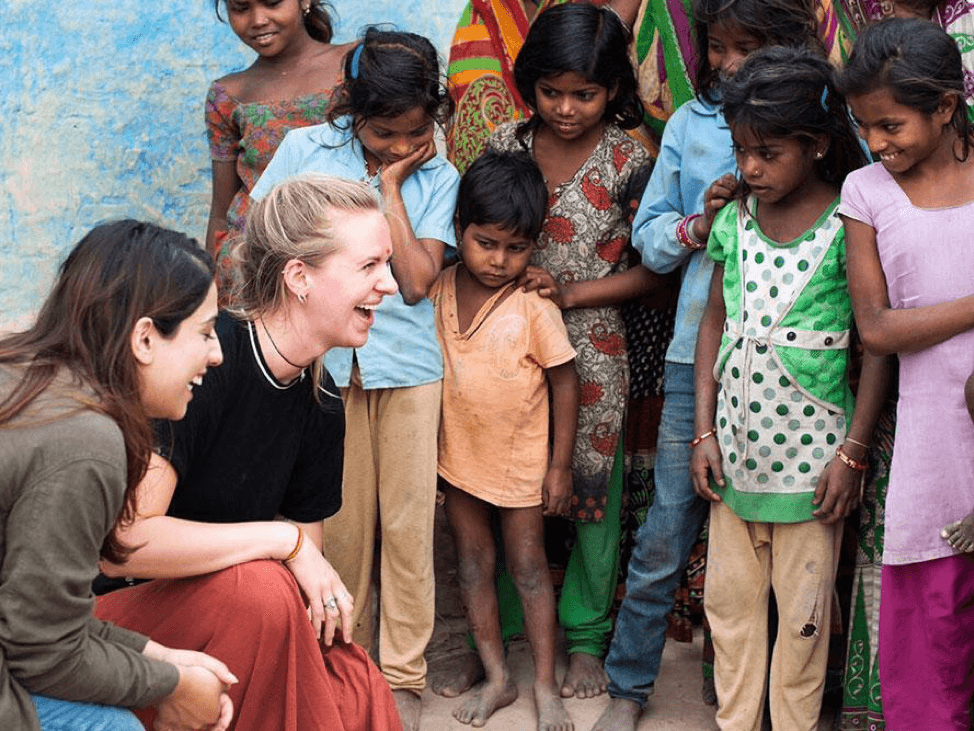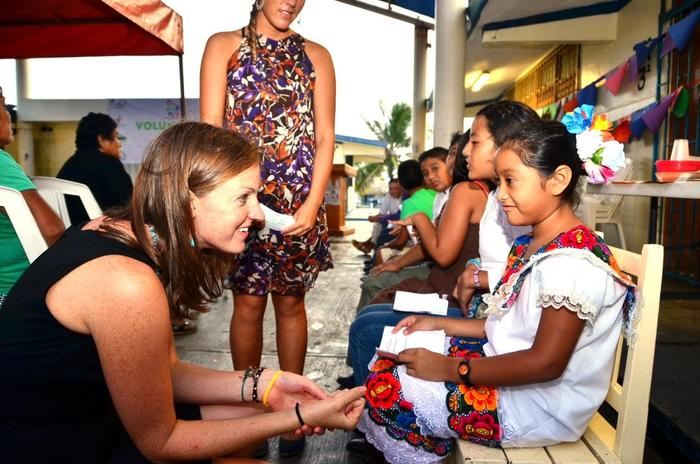By: Cristina Chavez MNA ’20

Image Source: https://theday.co.uk/stories/expos-reveals-dark-heart-of-voluntourism
The idea of teaching English in Cambodia, assisting at a medical clinic in Guatemala or building a well in Uganda sounds like a life changing experience if you have two weeks of vacation to spare. However, these short-term international volunteer experiences do little to prepare, educate, or align the volunteer’s skill sets to meet of the needs of the community they serve. I’m guilty as well for having participated in these trips for educational programs. Many of times, I felt helpless and ill-informed when stepping into these spaces as a student. Many of these international engagement experiences do more harm than good to improve the quality of lives for the community and in result, contributes to the growing problem of the voluntourism industry.
As a growing 2 billion dollar industry, voluntourism provides various types of volunteer experiences such as eco-tourism, medical trips, teaching, and many more. Voluntourism is described as Westerners who travel abroad to undertake projects that seek to improve the lives of its community. A combination of emotionally-striking poverty porn and the chance to ‘make a difference’ fuels the desires of altruistic Westerners to volunteer abroad in these communities. This in turn does more to hurt vulnerable communities and plays into the narrative of the egocentric western savior complex. However, the voluntourism industry argues there are many pros to providing these trips such as transformative experiences, exposure to local communities, and fundraising opportunities.
The problem with the dark side of the voluntourism industry is that its feeds from complex systemic issues of poverty and suppression. Many voluntourists lack the understanding of their privilege and the oppressive systems when entering into these spaces. As Teju Cole famously tweeted, “The White Savior Industrial Complex is not about justice. It is about having a big emotional experience that validates privilege.” Voluntourism takes on a nuanced-colonialism through the disguise of exotic travel with the hopes of ‘making a difference.’ For example, the popularity of voluntourism trips rose during the aftermath of natural disasters as evident in the case of Haiti’s 2010 earthquake. While voluntourists contribute to this evolving problem, many NGO’s also hold responsibility by perpetuating the industry. NGO’s will at times invest more in catering to the experiences of voluntourists than it does to elevate and invest in its community by withholding funds from its community.
While voluntourism is well-intentioned, the industry must challenge itself to delve deeper to uphold a higher standard of ethics and establish concrete initiatives. I argue for the voluntourism industry to focus on several initiatives in order to achieve real impact such as education of social issues, sustainable development, cultural competence, measured impact, and a code of ethics.
Beginning with education, the industry needs to provide thoughtful, honest, and community driven programming around the social justice issues at hand. In addition, sustainable development projects must be community-centered rather than serve the experience of the volunteer. Volunteer skill sets, capacities, and experience should align accordingly with goals the community it is seeking to achieve in order to make sustainable impact. Cultural competence must be upheld when working with vulnerable and poverty-stricken communities. Clear communication, respect for beliefs and practices, and adaptability must be at the core when working with groups whose culture is different. In addition, voluntourists organizations need to measure impact on a short-term and long-term scale, considering all unintended consequences. Most importantly, voluntourism organizations should be upheld to a code of ethics and remain transparent at all times.
Voluntourism can make a positive impact, but it must move away from superficial engagement by upholding a strong code of ethics and calling on the support of professionals. It is also important to critically analyze the intentions of all involved–the voluntourist, voluntourism organization, NGO, and community. This must be an open conversation where all share collective responsibility.

Watch: Voluntourism: When You Take More Than You Leave Behind | Madara Žgutė | TEDxISM


